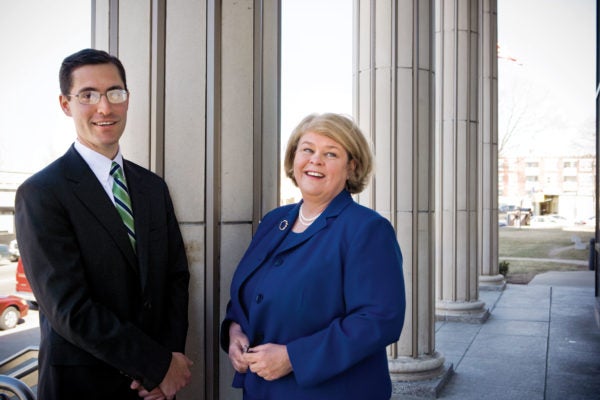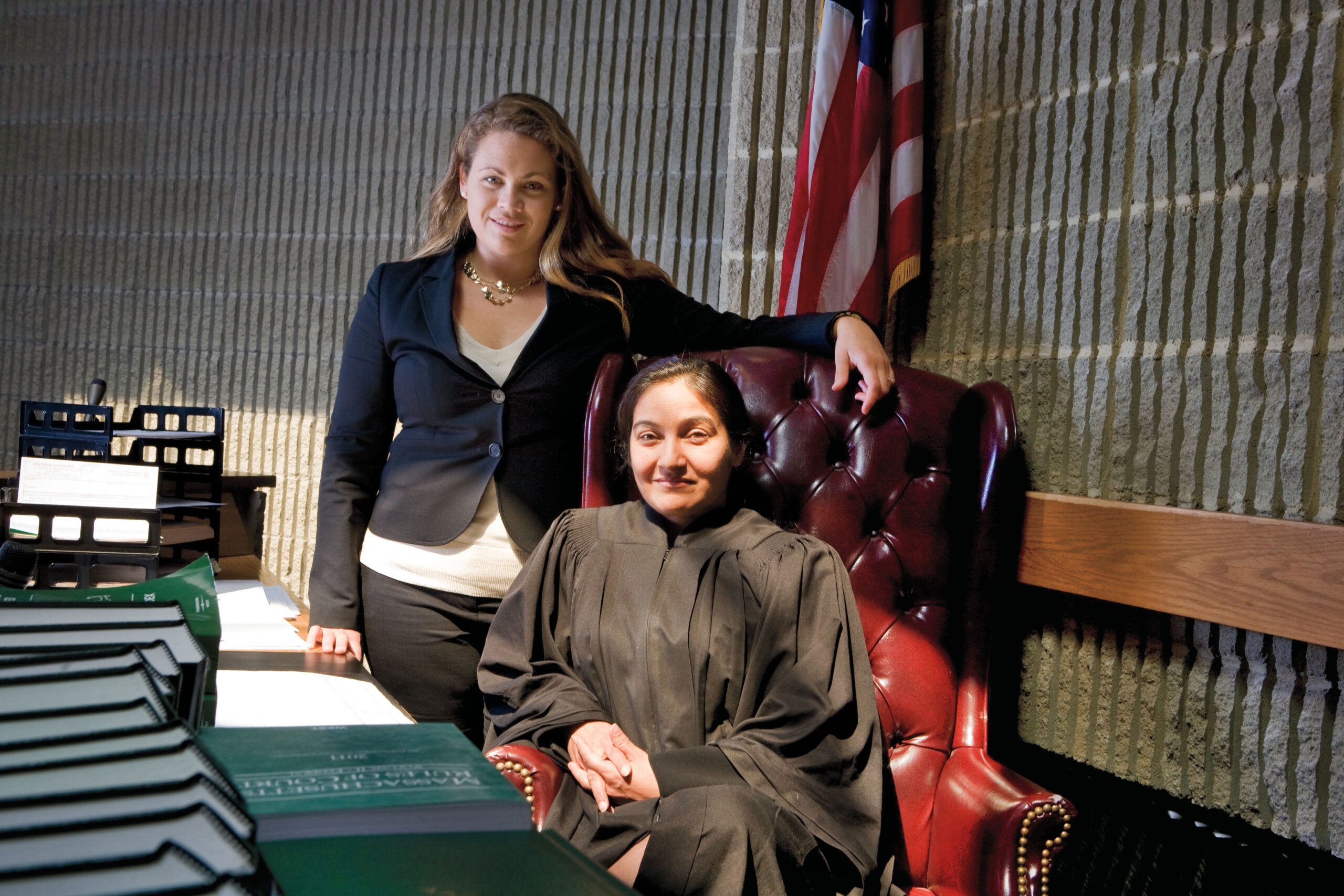Arraignments on drug charges. Restraining orders in cases of domestic violence. Default judgments on overdue credit card payments and appeals on speeding tickets. When Judge Sabita Singh, an associate justice on the Massachusetts District Court, presides over these and a wide range of other civil and criminal matters, Allison Lukas ’11 is there.
Lukas is a student in Judicial Process in the Community Courts, a clinical course in which HLS students are placed in internships with judges in the Boston area—including in district court, municipal court, juvenile court and housing court, and the federal district court in Boston—and meet each week for a seminar that integrates their experiences with discussion about major themes in community courts.
“It’s been incredible having such unique access to the inner workings of the courts and the internal processes of a judge,” says Lukas, who will be clerking for federal Judge John A. Woodcock, chief judge for the U.S. District Court in Maine, before joining Weil, Gotshal & Manges’ Boston office.
Singh sits on the District Circuit Court, which puts her in a different courthouse nearly every day, from Somerville to Salem, from Lowell to Medford. “It’s been a fantastic opportunity for me to not only see how the district courts work generally, but also to compare and contrast the courts in each community,” Lukas adds. Singh also sits on the appellate division of the Massachusetts District Court, which gave Lukas the chance to research and draft an appellate-level opinion for the judge. “It’s endlessly fascinating to me to see how the stories unfold when observing the wide range of people who visit the community courts—a lot of cross-sections of society we don’t regularly see as students here,” says Lukas, who hopes to step onto the bench herself one day.
Her classmate Zachary Zwillinger ’11 is equally enthusiastic about the course. Every Tuesday, he takes the T to Dorchester to observe Judge Rosalind Miller, first justice of the Dorchester division of the Boston Municipal Court, which primarily handles minor criminal cases.
“For the students, being in a court like Dorchester, in particular, is a very, very different kind of experience,” says Miller. “We’re a very busy court with a lot of interesting issues; much of what we do on a daily basis are Fourth Amendment search and seizure issues, those con law questions they study back at HLS.”
Zwillinger watches Miller and her fellow judges handle trials, probation revocations, and motions, and then heads with them to the judges’ chambers to discuss why they made the decisions they did.

Zachary Zwillinger ’11 with Judge Rosalind Miller of the Boston Municipal Court, Dorchester
“Through my research and writing, I’ve learned about different areas of Massachusetts evidence law,” he says, “and also learned how cases move through the lower-level Massachusetts courts.” But what has been most valuable has been talking with the judges and getting insight into how they think, according to Zwillinger, who will be clerking for Judge A. Joe Fish of the U.S. District Court for the Northern District of Texas before joining Dewey & LeBoeuf’s New York City office. “Law school is great at teaching students how to analyze situations, to weigh the strengths and weaknesses of particular positions, and to advocate one over the other,” he says. But the classroom “doesn’t really teach you how to make decisions,” he says, something these judges do dozens of times each day. “Watching and learning how to make decisions is what sets my experience in this clinical apart from the rest of my law school experience.”
This is exactly the sort of educational opportunity envisioned by Judge John C. Cratsley of the Massachusetts Superior Court when he launched the clinical course four years ago. “There is nothing in the traditional curriculum about judicial decision-making, about how courts run,” says Cratsley, who has been on the bench for 34 years, including 10 years in the District Court in Roxbury.
His proposal came at a critical time: Most judges in Massachusetts don’t have law clerks and, with the current financial constraints, are unlikely to do so despite their often crushing workloads. “It’s a win-win,” says Cratsley. “The judges get volunteer legal assistance, and the students get to see the first level of our court system and the many urgent issues, from drug abuse to domestic violence to street violence.” He is particularly pleased with students’ reports that the judges take the teaching role very seriously, while students see the nitty-gritty of how courts really work and hone their research and writing skills.
The classroom component provides an additional dimension that postgraduate clerkships don’t offer. The seminar covers a range of subjects from sentencing policies and philosophies to judicial ethics, from new approaches to juries—such as allowing them to take notes or ask questions of witnesses—to specialty courts including drug and mental health courts. Students write a paper rooted in the work they do for their judges. “Judge Cratsley actively encourages us to present any relevant observations we’ve had in our ‘fieldwork,’ as he calls it,” says Lukas. “Hearing other students’ comments, usually about proceedings they observed that same week, greatly enriches these discussions.”
Among the 16 clinical students in the course are two LL.M. candidates who are judges themselves, one from Japan and the other from Korea. “They add quite a bit of conversation in class about different court systems, so it’s a really good comparative discussion,” Cratsley says. The course has proven so popular, with a long waiting list, that next year he’s expanding enrollment to 20. Meanwhile, says Cratsley, “I get judges stopping me on the street, asking, ‘Can I get one of your students next semester?’”
